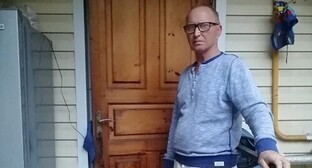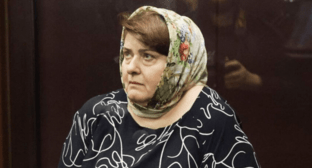12 December 2011, 23:00
Week in the Caucasus: review of main events of December 5-11
Mass protests against rigged elections to Russian Duma held in Moscow, St Petersburg and cities of Southern Russia; resignation of South-Ossetian President Eduard Kokoity on agreement with the opposition; mass poisoning of Nalchik residents; start of trial in Krasnodar Territory of figurants in massacre of 12 persons in the village of Kuschevskaya; promulgation of amendments to the Electoral Code of Georgia, - look these and other events in the Caucasus in the review of the week of December 5-11, 2011, prepared by the "Caucasian Knot".
Mass protests against falsification of Russian State Duma election outcomes
According to the Central Election Commission (CEC) of the Russian Federation, at elections to the State Duma, held on December 4, the "Edinaya Rossiya" (United Russia) Party won 49.54 percent of votes, the Communist Party of the Russian Federation (CPRF) - 19.16 percent, the "Spravedlivaya Rossiya" (Fair Russia) - 13.22 percent, the Liberal-Democratic Party of Russia (LDPR) - 11.66 percent. The "Yabloko," "Pravoe Delo" and "Patriots of Russia" failed to win any State Duma mandates. The country's authorities believe that the elections were free and fair. However, observers fixed violations in many Russian cities, including the Stavropol and Krasnodar Territories, Dagestan, Kabardino-Balkaria, Ingushetia, Volgograd, Rostov and Astrakhan Regions.
On December 5, 6 and 7, Moscow and St Petersburg hosted protests, as a result of which hundreds of people were detained. The largest action was held in Chistoprudny Boulevard in Moscow. There is no exact data on the number of protesters; however, bloggers assert that the rally brought together 10,000 people. According to eyewitnesses, OMON (riot police) agents behaved rudely at detentions, knocked people down and beat them.
After that, around a hundred communities of cities were formed in social networks, calling those who disagreed with the Duma election outcomes to out to rallies on December 10. Residents of the regions of the Southern and North-Caucasian Federal Districts (SFD and NCFD) had planned to take part in them. In particular, actions were held in Rostov-on-Don, Krasnodar, Astrakhan, Volgograd, Stavropol, Makhachkala, Pyatigorsk and other cities of Southern Russia.
About ten persons detained at an unauthorized rally in Rostov-on-Don were the only ones who got to the police among all the NCFD protesters, said the Russian Ministry of Internal Affairs (MIA). However, participants in protest actions in other cities, namely, in Taganrog and Krasnodar, argue that there were detainees also in these cities. Detentions were also reported by protesters from Makhachkala and Pyatigorsk.
In the course of the rally held on December 10 in Moscow in Bolotnaya Square, different estimates were made; however, most of the protesters believe that the rally will have a major impact on development of the civil society in Russia. According to different sources, it was attended by 50-150,000 people - the event passed without incidents. The crowd was addressed by Boris Nemtsov, Gennady Gudkov, Grigory Yavlinsky, Leonid Parfenov, Oleg Orlov, Sergey Parkhomenko, Mikhail Kasyanov, Andrei Nechaev, Vladimir Ryzhkov, observers from the Public Chamber and human rights defenders. According to the Russian Ombudsman Vladimir Lukin, the event was well organized; it passed in a calm atmosphere. During the rally, its other participants also stressed good preparation and benevolent behaviour of the police in relation to protesters.
After the mass rallies, the Russian President Dmitry Medvedev promised to check all the reports about election violations. Activists of oppositional parties expressed disappointment with his reaction and found it insufficiently serious.
South Ossetia: President Eduard Kokoity resigns on agreement with opposition
The republic is still witnessing a political conflict that arose after the second round of presidential election, held on November 27. The main event of the week was the resignation of the President of South Ossetia Eduard Kokoity, which he announced at the meeting with the public of South Ossetia on December 10. From December 11 on, the Prime Minister Vadim Brovtsev is the acting president of the republic. It was stipulated by the agreement signed by Mr Kokoity and the opposition in the person of the ex-presidential candidate Alla Djioeva.
Prior to announcing his resignation Kokoity signed decrees on dismissal of the Chairman of the Supreme Court and General Public Prosecutor of the republic; Djioeva's supporters began dismantling the tent camp erected in the main square of Tskhinvali, while Alla Djioeva announced her decision to refuse to take part in her inauguration scheduled for December 10.
The confrontation arose after on November 29 the Supreme Court of South Ossetia considered the complaint of the presidential candidate Anatoly Bibilov and recognized the second round of the election, which took place on November 27, to be null and void. The parliament appointed the repeated presidential election on March 25, 2012. Alla Djioeva filed a cassation, but on December 5 she announced her intention to recall her complaint from the court, because she did not believe in justice in South Ossetia.
Kabardino-Balkaria: new mass poisoning in Nalchik
On December 6-8, in the capital of Kabardino-Balkaria, 170 persons, including 68 children, were hospitalized with diagnoses of acute gastroenterocolitis and food poisoning. On December 9, in total, more than 200 patients, including 100 children, were taking their treatment from a suspected intestinal infection.
The source of poisoning the Nalchik residents remains unknown. Many experts had informally associated the incidents with the poor quality of the tap water; however, water samples taken from all the six water supply stations in Nalchik showed that the water met all the requirements of the SanPiN (Sanitary Rules and Norms) on drinking water.
In early November, the "Caucasian Knot" also wrote about a mass poisoning of students at the Kabardino-Balkarian State Agricultural Academy in Nalchik. According to investigators, the source of poisoning in the canteen was in pickled cucumbers, bought in the marketplace. One of the patients, a fifth-year student Radima Ezieva died in the Urvan District Hospital. A criminal case was initiated against the doctor who had examined the student.
Krasnodar Territory: court starts considering case of figurant in Kuschevskaya massacre
On December 8, the Krasnodar Territorial Court opened the trial of Andrei Bykov, accused of involvement in the murder of 16 persons, including the massacre in the village of Kuschevskaya in November last year. This is the first trial of a figurant of that resonant crime. The victims demanded to consider the case in an ordinary manner; however, the court decided to run the case under special procedure, as requested by the defendant, which implies that Bykov will not receive the maximum sentence for his crimes.
Andrei Bykov was detained on November 20, 2010 at the airport of Rostov-on-Don. On November 17 it became known that he concluded a pre-trial agreement with the investigation; and his case will be considered by the court at a closed session, because threats began to arrive to the defendant and his family. The GPO (General Prosecutor's Office) of Russia had noted that Bykov actively cooperated with the investigation.
In total, 12 persons are accused on the case of the massacre in Kuschevskaya.
Georgia: draft Electoral Code amended as recommended by Venice Commission
On December 8, Pavle Kublashvili, Chairman of the Judiciary Committee of the Georgian Parliament, briefed representatives of international organizations with the amendments made in the draft Electoral Code of Georgia in accordance with the draft recommendations of the Venice Commission and Georgian non-governmental organizations (NGOs).
In particular, the draft was complemented with a point that allows initiative groups of five persons to nominate their independent candidates for majority deputies. Also, amendments were made allowing those convicted for serious crimes to vote at elections. The recommendation of the Venice Commission to reduce to five years the residence term in the territory of Georgia for candidates for the president and MPs was taken into account. The draft code has reduced the number of signatures of supporters of the running political parties: instead of earlier 30,000, now, 25,000 signatures should be submitted to the Central Election Commission (CEC) of Georgia. Other amendments were also made in the draft code.
On October 26-28, experts of the Venice Commission considered the amendments to the Electoral Code of Georgia by meeting the members and supporters of the ruling party "United National Movement", and the opposition. The recommendations of the Venice Commission were actively discussed in the country. The Venice Commission will pass its conclusion on the draft Electoral Code of Georgia on December 16.




